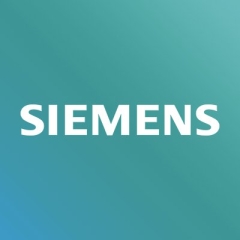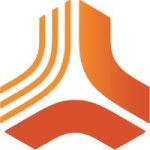What is our primary use case?
The solution is to create the documentation necessary, especially if it is to be given in technical documentation, to get the right to put a medical device on the market. For a medical device, you have to give the regulatory authority a lot of information, and they go down to the lines of code and to the risk management of this line of code, for this database is needed since it is no more possible to do it with hands. In this case, they outsourced the validation of the software with another company, and they made the software with another company. Polarion was used to extract from the software the information for the regulatory authority.
What is most valuable?
I worked with a customer to use Polarion. My experience is about the feedback and the output of the tool. It worked, but it wasn't the best one I have evaluated.
Speaking from my experience, I get the feedback of the user, and I get told about the document to be provided in the technical documentation. It's mostly about the report or the reporting. It's also about how to extract the quality data from a huge management report saying that all the software requirements were correctly evaluated from case management. This evaluation is correctly re-evaluated with software for the VnV process. So all of these reports and with software like Polarion, one must be able to get all of these reports with just a click, which is somehow not the case with Polarion, especially with the experience I had. There is a lot of work to be done to complete the documentation needed.
What needs improvement?
The weak point of Polarion ALM software is about reporting and time for extraction of the data included in the database to communicate with the regulatory authority. Polarion did not understand that its user just wanted the reports to be submitted in a better way.
So about the improvement needed for the entire Polarion software, I spoke several times about the difficulties of the company working with a fixed standard with a document that is 500 pages, and you get this with a PDF. Also, each line of the standard will be connected to risk analysis. So the improvement I proposed is to transfer the PDF document and pages inside the database directly to be able to use each pair with the database tools. So what I saw is that Aligned Elements proposed this but never maintained this correctly, so it was useless since data was changing very often. The database standard will be very useful for doing the safety report and everything. In fact, with what is coming for the regular database, they need to add on the database format. So this is a change that happened now. So, how to integrate these changes inside the software is new. The EDR software will be software that includes thousands of standard insights in a database and maintains them correctly.
My customers were complaining about the quality of the report. The quality of reporting needs to improve.
For how long have I used the solution?
I have worked with Polarion ALM from Siemens. I have worked on the solution for one project. I mean, I'm hitting a thousand verticals every day, and maybe not every day, but quite a lot. I had one project where I had to do a report, and I was paid for this report. It was for a month, or maybe two months, for which I had to update my knowledge every day. I work as Polarion ALM's consultant. I never purchased the solution, but my customers purchase it and use it.
What do I think about the stability of the solution?
When you say a stable solution, it depends on the technology choice at starting the project. For example, what I can see now, is the protocol to exchange data between different stakeholders until now. A lot of it is web-based in XML format. Now we are talking more and more about JSON format. So there is a delay between this manufacturer and the market. But there are so many stakeholders in the medical device industry, so it is very difficult to choose the correct time to say now, we will switch from XML to JSON. In a particular case concerning Polarion ALM, that shows its sufficient repository, which is not the best. Now as I saw, every database is switching to Git and GitHub. But the market changed to Git. I would say this is what I can expect from a Polarion, which is to match the technology change that the market requires for the near future. Jira is fully integrated nowadays. So this makes it an advantage for Jira.
SVN will be obsolete someday. Polarion using SVN will become obsolete, while Jira using Git is good. Git has some problems with cybersecurity, so the company is making a safe Git. The safety of Git is a concern in my domain since, to use a device, you are using a processor, and you are using the ID for the processor, and each processor has its ID.
What do I think about the scalability of the solution?
Scalability is good. I would say that for medical devices, we do not have so much of a problem because, as per the technical documentation, the reports must be done by the tools. We'll go from thousand pages to ten thousand pages. So ten thousand pages is not a problem for any software database today. It's more about matching the evolution of the standard that must be integrated into the database. This is a problem. For the manufacturer of the software, doing such a procedure for the customer is not required because I saw every customer doing this job and not in the right way. So doing it for Android customers is better.
How are customer service and support?
I have contacted the support for my customer because of their requests to improve the reporting of the data from the database. The people I work with at Polarion complain a lot compared to Aligned Elements, which seems to have a better customer approach even though it is smaller. I worked with Cisco. Polarion had better support because of proximity criteria. There are always a lot of parameters to answer on what is the best if it is on-premises or external.
I once worked with the manager of DevioTech, and they gave me feedback from their company's engineers. Since I have never talked directly with Polarion or its engineers, it's not a good idea to speak on their tech support.
Which solution did I use previously and why did I switch?
I have worked with Jama, a QMS for medical devices. Also, I have worked with Aligned Elements.
You can find on the internet a lot of comparisons between Polario and Orcanos. I have worked with Orcanos for three years, and so I can say that it is very bad and the worst.
How was the initial setup?
Speaking about the time taken for implementation, I had worked on one project, and I was concerned by the technical documentation. They were done with support from Polarion. So, I don't know how many times my customers had to implement Polarion.
The solution has on-premises and the cloud version in the market, and both have advantages and inconveniences. With my experience, I am able to identify the advantages and inconveniences, but I'm not able to say if Polarion is proposed on both the models and how they proposed each of them.
What's my experience with pricing, setup cost, and licensing?
Software for medical devices is always expensive. However, they are in the range in terms of price. I never bought software though I have made some comparisons for my customers. As a consultant, I have made some proposals, so I do not get myself to ask the purchase departments to request an offer. I do not remember exactly the prices, but it really depends on the parameters taken into account. In the case of another company, Polarion requested 1,00,000 for the on-premise version and 10,000 for license updates. So it isn't easy to compare things.
Which other solutions did I evaluate?
I know which is a better solution because I have to evaluate them and install them in certain situations. I have to teach the user how to use it, and I have to search software and databases. So I have also to explain to the database manager how I want it to be implemented.
What other advice do I have?
The solution has some advantages but has some inconveniences as well. I know it's beyond the project. The integration is quite good. The weak point of doing this way is not having a full database to rely on another database. Also, the customers used it for a long time and were happy with the solution. To convince a new customer who asks me which are the best tools, and if such incidents had happened in the past, then it was my job to answer them. Hence, I wouldn't recommend Polarion. However, I can change my mind since I currently see things like Guru for a project in Geneva for implants.
I don't have enough experience to give a suggestion on this, and I'm talking about it based on the feedback from my customers who have used Polarion and Aligned Elements. If we are talking about this parameter, I have more experience with Orcanos, the medical device requirement database, from the software scanners, which an Italian company does, and my part in it was just a nightmare. So I will make a very bad note on Orcanos, but you can find on the internet a lot of capacity between Polario and Orcanos. Orcanos is one of the worst ones. I worked three years before on Orcanos, so I would not say anything bad about Polarion.
My rating of the product depends on the size of the company and how many engineers and software engineers are inside the company, along with the IT resources that they have. There are a lot of parameters for me to advise my customer. I can say that Polarion is good for you, and I will propose an open source for you.
For you, I will propose Greenlight Guru, which is more expensive. The learning curve is also longer.
We need to consider who will use it and for why, and with which competencies. But for implants, I will recommend Greenlight Guru because the quality of the reporting is better.
Suppose I can take generic requirements because, if I have to give advice to one of my customers, I will take into account much more parameters. In general, where I would say Polarion is not doing evaluations the right way, especially considering things like who is on top of the evolution. I would say evolution is the main parameter. So I really rank Polarion lower than Greenlight Guru because of such reasons. To my customer, I say also each of the solutions provides QMS, and you can have a good idea of the requirements of the company by looking at their blogs. Greenlight Guru is really looking for evolution, and because of the evolution in medical devices, it's very fast. I would take this as a top parameter, so I recommend Greenlight Guru in this case. You will also have to show the software validation to the FTA for the implant. It's an investment, in this case. They have to invest time. They have to know someone that knows things like Greenlight Guru even though their learning curve is quite slow, but having the people that know already together with the software makes sense. It's kind of a strategy as well.
I rate the overall product a five out of ten.
Disclosure: My company has a business relationship with this vendor other than being a customer. reseller















